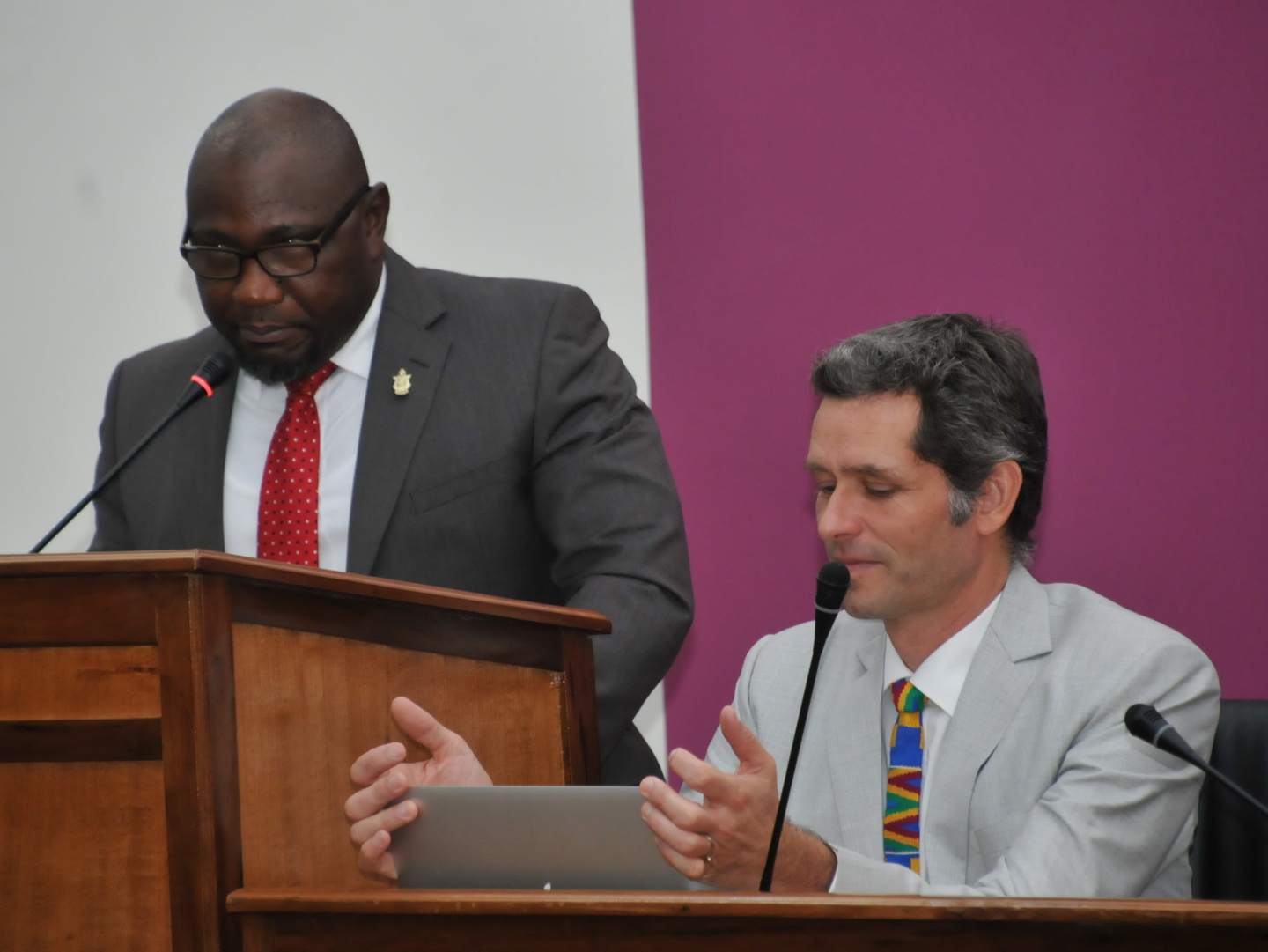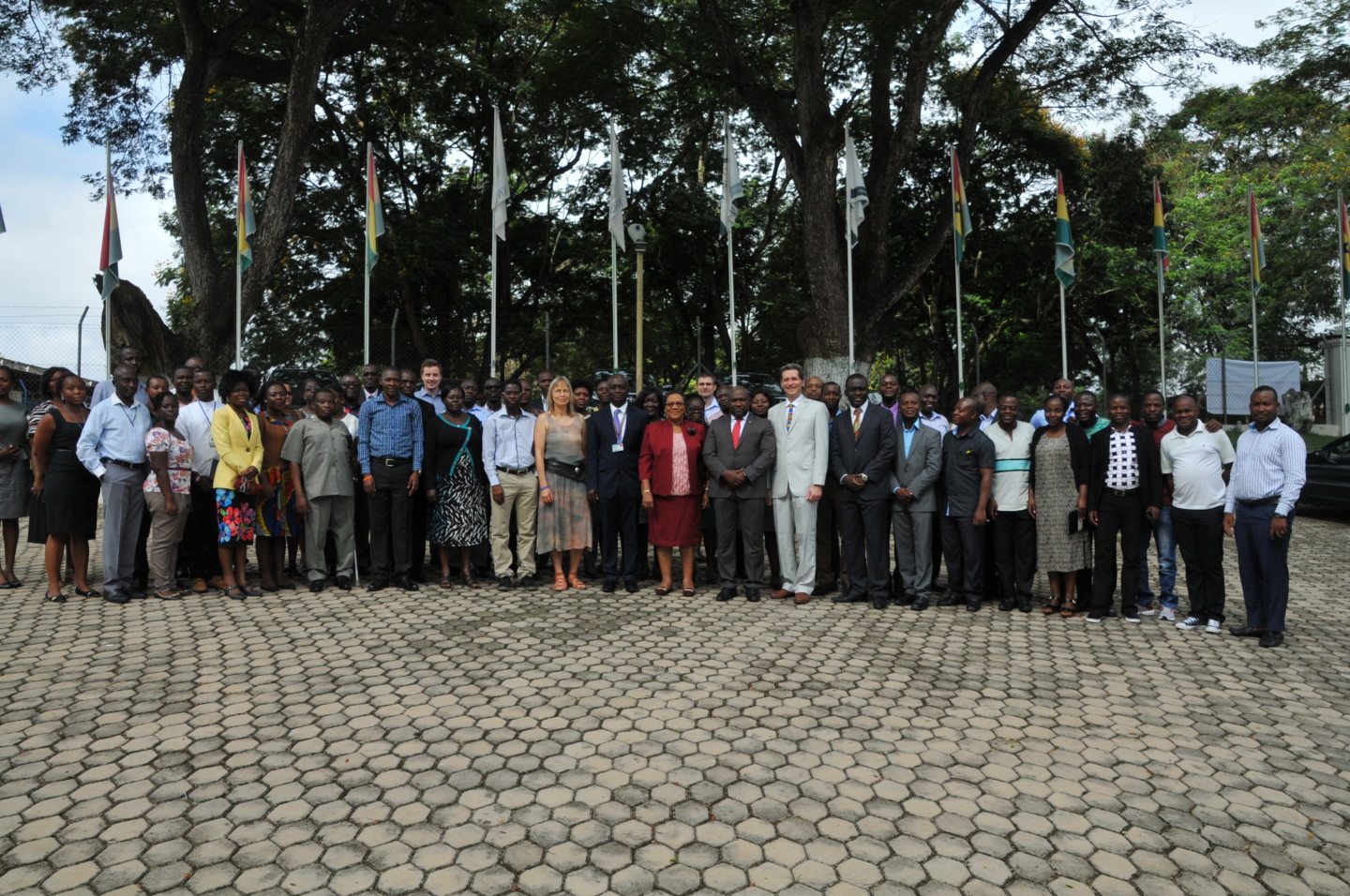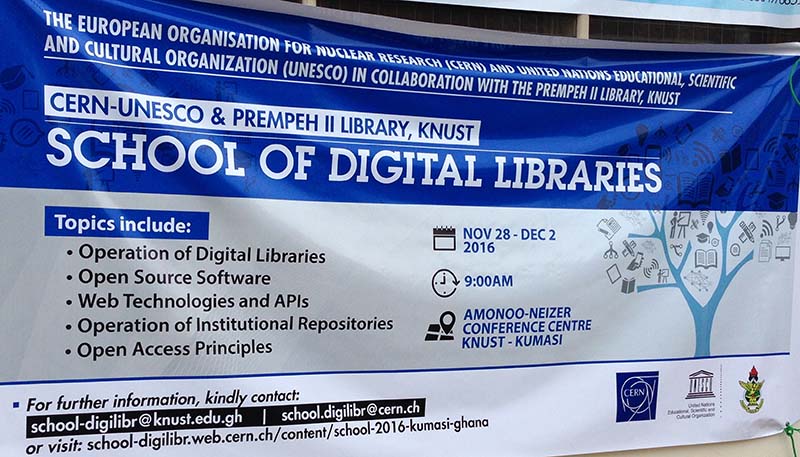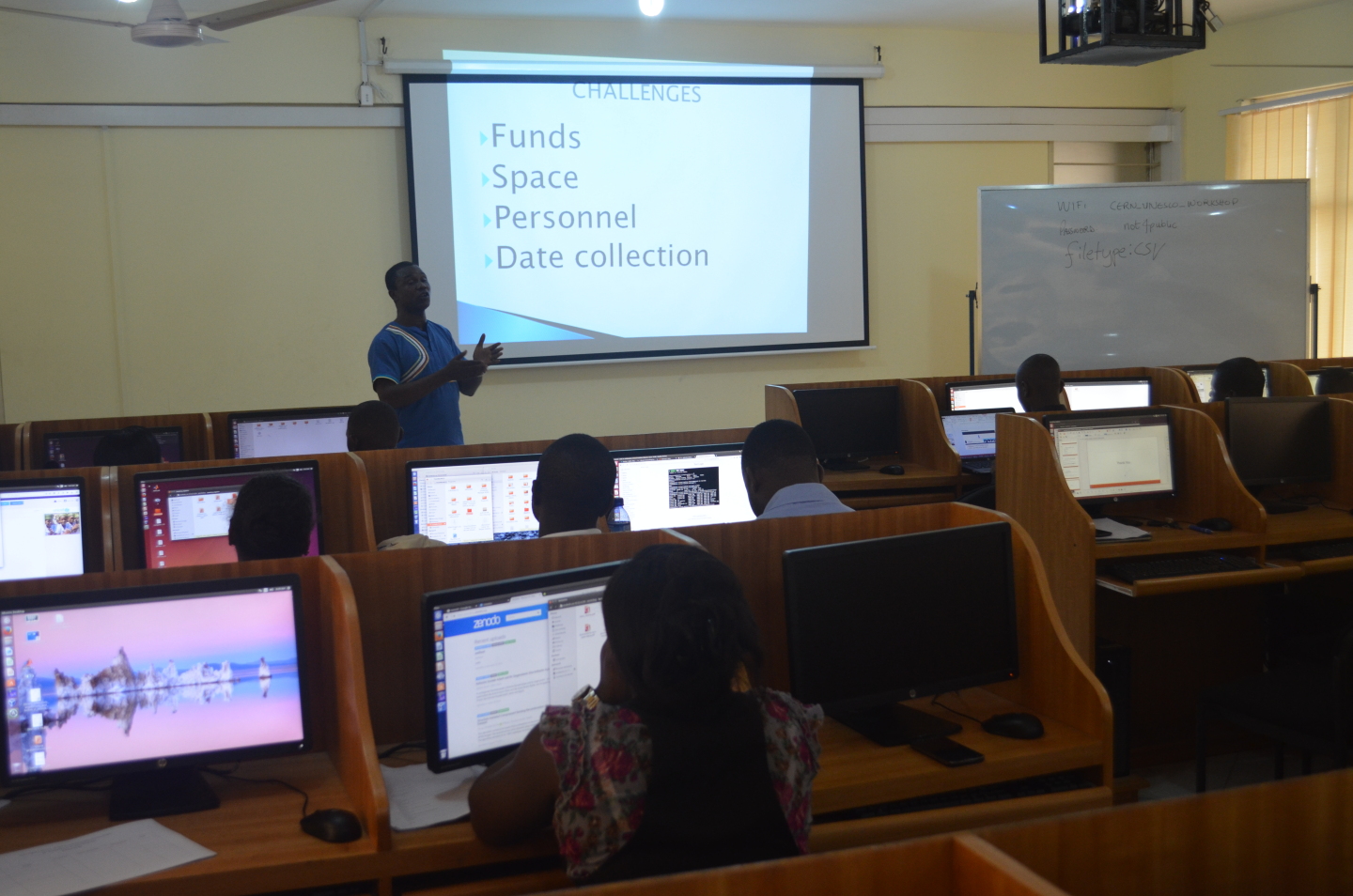2016 Ghana
Forth CERN-UNESCO School on Digital Libraries, held at Kwame Nkrumah University of Science and Technology (KNUST), Kumasi, Ghana 28 November - 2 December 2016
The school was organized by the United Nations Educational, Scientific and Cultural Organization (UNESCO) and the European Organization for Nuclear Research (CERN) and was hosted by Kwame Nkrumah University of Science and Technology. The purpose of the school was to deepen the participants’ understanding of digital libraries, expose new trends in scientific publishing and emphasize a set of principles related to open access, both for data and publications.

Samuel Nikoi, head of the Prempeh II Library, chairing the opening ceremony. To the right: Jens Vigen, head of the CERN Library.
KNUST hosts African digital library school
"...At the opening ceremony on Monday, the Vice-Chancellor of KNUST, Prof. Kwesi Obiri Danso, in a speech read for him, underscored the importance of digital libraries saying “our institutions hold various collections, derived from teaching and research, held in various formats that could benefit our students if made digitally accessible.”
Libraries and librarians, he said, were well placed to curate such resources and provide seamless open access to them, from one central access point, “to our large student audience, thereby enhancing their learning experience and also bridging the digital divide.”
Published in: The Ghanain Times. The full article is accessible here.
CERN & Society Foundation in Ghana

Librarians, IT specialists, CERN staff members and staff of the Prempeh II Library gather for the CERN digital library workshop.
In December 2016, CERN staff members went to Kumasi, Ghana, to introduce the Invenio digital library software developed at CERN to librarians and IT specialists. Thirty participants from eight different African countries gathered for the week-long training course.
A follow-up week offering about six participants of the Kumasi school advanced training on digital libraries will also take place at CERN during spring 2017. The purpose of the school is to deepen participants’ understanding of digital libraries, expose new trends in scientific publishing and emphasise a set of principles related to open access to both data and publications, which is crucial to promoting open science.
This is not the first time the CERN & Society Foundation has partnered on projects in Ghana. In 2012, CERN donated 220 decommissioned servers and 30 routers to the Kwame Nkrumah University of Science and Technology (KNUST). These servers are now being used at the National Institute of Mathematical Sciences, NIMS, hosted at KNUST, a facility partly financed by the Norwegian Academy of Science and Letters.
CERN’s Data Centre contains around 10 000 computers that need to be upgraded every four to five years. Once decommissioned, these computers, although obsolete for CERN’s cutting-edge research purposes, are still suitable for less demanding applications and can be donated to other institutes.
The CERN-UNESCO School for Digital Libraries is a CERN & Society project and the 2016 school in Ghana was made possible thanks to a generous donation made by Ms Margarita Louis-Dreyfus.
To learn more about the CERN & Society Foundation’s activities and how you can be involved, visit the dedicated page.
Published in : CERN Bulletin Issue No. 5-6/2017 Article "CERN & Society Foundation in Ghana"
Building “future libraries” in Africa with UNESCO and CERN
CERN-UNESCO School on Digital Libraries brings librarians and IT specialists to Ghana for hands-on learning with Elsevier

Participants and teachers ride from the hotel to the university in Kumasi, Ghana, early in the morning. (Photo by Kenneth Hole)
Many of the 30 attendees of the CERN-UNESCO School of Digital Libraries traveled long days to reach the city of Kumasi in Ghana. University librarians and their IT information specialists from Ghana, Uganda, Nigeria, Zimbabwe, Kenya, Malawi, the Seychelles and South Africa gathered for an intense training week in November at Kwame Nkrumah University of Science and Technology (KNUST) in Kumasi with a focus on building a “digital library of the future.”

The banner outside of the Premphe II Library. (Photo by Charon Duermeijer)
This was the fourth school organized under the auspices of CERN and UNESCO. The purpose of the school is to deepen participants’ understanding of digital libraries, expose them to new trends in scientific publishing and emphasize a set of principles related to open science, such as open access, information sharing and research data management. The overall aim is to increase the impact of African researchers’ work by making it discoverable across the Internet.
The program benefits from an established collaboration with the Association of African Universities (AAU) and the African Digital Library Support Network (ADLASN), which were instrumental in identifying the 100+ applicants who applied for the 15 places for international participants.
The presentations were given by information professionals for leading international organizations, including CERN, the publishing industry represented by Elsevier, and Tind Technologies for the library IT business. In addition, several of the participants provided updates on projects running in their respective institutions and countries.
Many discussions and hands-on training sessions were devoted to building national or local repositories. As Patrick Sekikome, Academic Librarian at Makerere University in Uganda, explained in his country presentation: “We want to build a repository to support international intercultural understanding, expand the volume and variety of cultural content, to provide resources for the general public and narrow the information gap.” Subsequent discussions revealed that this ambition comes with a great challenge, which most attendees said they experienced in their countries as well: the bandwidth of the internet remains a problem.
Published in: Elsevier Connect. The full article is accessible here.

Felix Kibet Rop, University of Nairobi Library, Kenya